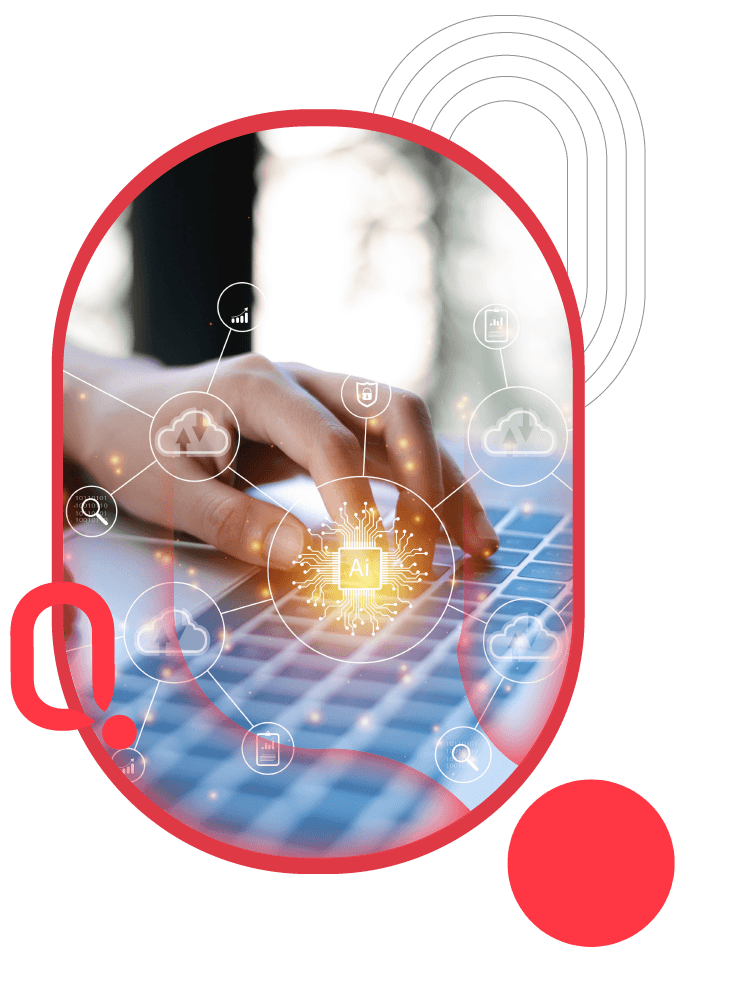What is Business Intelligence?
Business intelligence is the use of technology, processes, and tools to transform data into information that can be used to make decisions.
Information from a variety of sources can be useful for improving business processes and creating strategies. These sources may include: statistics about consumer trends within your industry, data about sales made, or opinions about your company expressed on social networks.
Business intelligence allows you to transform these data points into actionable information that helps you improve processes and create strategies in general, which in turn promotes business growth and value creation.
Benefits of Business Intelligence

You will have all tasks under control, since you can access specific reports for each area of the company, this information can be shared with all leaders of each area, which facilitates the recognition of errors and bottlenecks.

You will be able to get the right data at the right time, since all the company's data is centralized, it will increase agility when making decisions, with accurate data, without speculations or assumptions.


Get customized reports, each area leader will be able to access specific information.

Create customized dashboards, with keys and filters that adjust to the needs of each area, easy to interpret and dynamic.

Save time with the accessibility and continuous updating of information.
Levels of business management where you can apply Business Intelligence

Operational
Involved in daily decision-making in the immediate workflows of the company.

Tactical
Involved in decisions that will affect the company in the near future, for example, monthly strategies that must be constantly reviewed.

Strategic
This level refers to decisions that will be taken in the long term, they are actions with previously defined final objectives, which complete the decision-making process.
Big Data
The use of Big Data has mainly been used by media or companies who want to address specific numbers to their audience or identify important insights for the creation of marketing strategies, internal communications, creation, and launch of new products, even improvement of internal processes, which is why it’s important to consider all data sources, from emails and social networks, to biometric readers.

The 5Vs of Big data
Benefits of Big Data
With the analysis of big data, companies can:
Obtain complete answers thanks to the amount of information.
Detect fraudulent behavior in any area.
Decrease decision-making time.

Increase efficiency in different processes.
Identify opportunities for improvement in different areas of the company.
Facilitate customer segmentation to personalize each action performed.
Big Data
También conocido como macro datos, datos masivos o datos a gran escala, este término se refiere a la gran cantidad de datos que puede generarse dentro de una empresa y que no pueden ser procesados de forma convencional.
El Big Data ha sido usado principalmente por medios de información o empresas que desean dirigirse con número precisos a su público o conocer insights importantes para la creación de estrategias de marketing, comunicaciones internas, creación y lanzamiento de nuevos productos, incluso mejora de procesos internos, es por esto que es importante tener en cuenta todas las fuentes de datos, desde correos y redes sociales, hasta lectores biométricos.

Las 5V del Big data
Beneficios del Big Data
Con el análisis de los macrodatos las empresas pueden:
Obtener respuestas completas gracias a la cantidad de información.
Detectar el comportamiento fraudulento en cualquiera de sus áreas.
Disminuir el tiempo de toma de decisiones.

Aumentar la eficiencia en diferentes procesos.
Identificar oportunidades de mejora en las diferentes áreas de la empresa.
Facilitar la segmentación de los clientes para personalizar cada acción que se realiza.
Big Data
También conocido como macro datos, datos masivos o datos a gran escala, este término se refiere a la gran cantidad de datos que puede generarse dentro de una empresa y que no pueden ser procesados de forma convencional.
El Big Data ha sido usado principalmente por medios de información o empresas que desean dirigirse con número precisos a su público o conocer insights importantes para la creación de estrategias de marketing, comunicaciones internas, creación y lanzamiento de nuevos productos, incluso mejora de procesos internos, es por esto que es importante tener en cuenta todas las fuentes de datos, desde correos y redes sociales, hasta lectores biométricos.

Las 5V del Big data
Beneficios del Big Data
Con el análisis de los macrodatos las empresas pueden:
Obtener respuestas completas gracias a la cantidad de información.
Detectar el comportamiento fraudulento en cualquiera de sus áreas.
Disminuir el tiempo de toma de decisiones.

Aumentar la eficiencia en diferentes procesos.
Identificar oportunidades de mejora en las diferentes áreas de la empresa.
Facilitar la segmentación de los clientes para personalizar cada acción que se realiza.

Artificial Intelligence
Artificial Intelligence (AI) is a whole field of study and innovation within the technological world, it’s based on creating algorithms with the purpose of emulating the capabilities of human beings.
This can be from systems that think like humans, applied in decision-making, problem-solving, or systems that act like humans, which focus on performing manual tasks, for example, robots used in manufacturing companies.
There are several ways of applying artificial intelligence, such as mobile devices we use every day, which have integrated functions such as facial detection or fingerprint reading, or the case of virtual assistants designed to make life easier for users.
Examples of artificial intelligence applications
Machine learning
Machine learning is a branch of Artificial Intelligence that creates automatic learning systems. These systems review data and make reports that over time will automatically improve, thanks to previous patterns and identification of new patterns, all without human intervention.
SQDM implements software with this technology, predictive models and others, which are adjusted according to requirements of each client, ensuring effective and high-quality implementations.
Benefits of Machine Learning

Predicts buying, selling and interaction trends, including when it is good to raise or lower the prices of the product or service.

Stimulates innovation,thanks to the wide capacity of process improvement and data analysis, machine learning favors searching for new solutions to problems of different sizes.

Reduces costs, the company can save on human capital or optimize stores, whether online or physical, according to the flow of customers.

Improves engagement, customer service, through the use of artificial intelligence (bots) is performed 7 days a week, 24 hours a day, which adjusts to the customer's available time.


